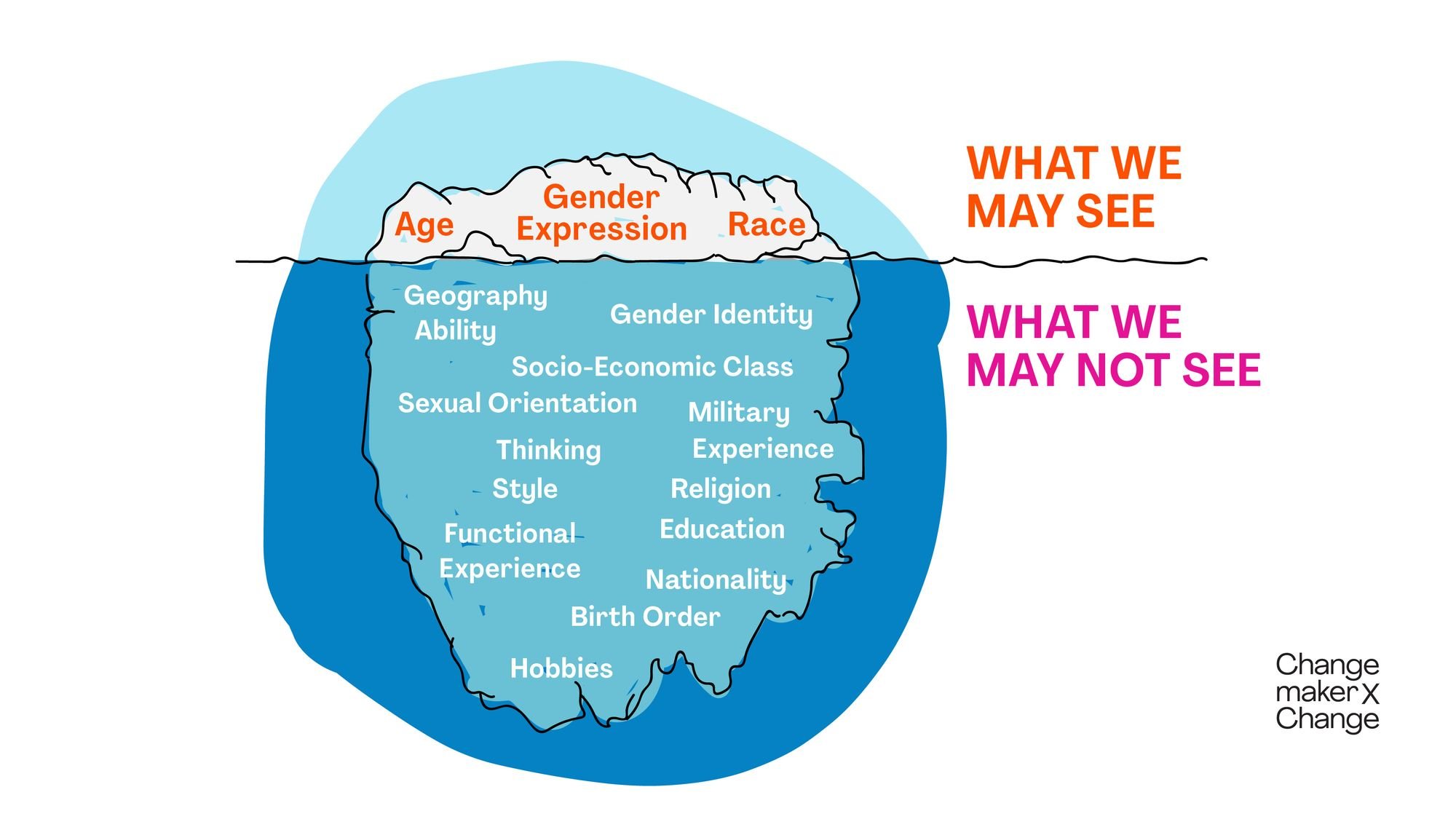Realm of ‘Growth’
We need to transition our mindset from a 20th-century perspective to one more suited for the demands of the 21st century, progressing beyond mere words into actionable steps and bridging the gap from the intangible to the tangible.
We’ve been exploring the multifaceted concept of growth, delving into its varied interpretations and meanings. Employing a critical approach, we opted for the term 'progress,' finding it better aligned with the purpose of our investigation and ultimate goal.
Are 'Diversity, Equity, and Inclusion' buzzwords, or do they carry genuine depth and significance?
Desktop Research | Precedent & Context
KATE RAWORTH - A Healthy Economy Should be Designed to Thrive, Not Grow
CHANGE MAKER X CHANGE -
The Iceberg
From ‘Change Maker x Change,’ we looked into different resources for DEI. The Iceberg framework caught our attention the most, as a useful representation for understanding diversity and personal experiences; “so much of who we are is beneath the waterline.”
The analogy of an iceberg, illustrating the visible surface and the deeper, unseen layers, was also emphasized by a Faculty member in our conversations, affirming the efficacy of this tool in conveying depth beyond surface appearances.
Kate Raworth invites us to a new shape (literally) for growth, highlighting that everlasting growth is unsustainble and a capitalist mentality that should be reassessed. She emphasizes the need for new ideas fit to the 21st Century challenges, and “economies that are regenerative and distributive by design”
RESPOND - Regenerative Economy: Moving from the Theory to Action
Consultancy firm Bain & Co. taps directly into our line of exploration regarding the importance of external engagement of DEI for a more meaningful impact.
It also highlights the importance of our role as strategic designers and our responsibility and ability in demanding these practices from corporations.
We were inspired by a Faculty member to look into the company Patagonia as an example of good corporate practices in truly activating its mission statement.
Patagonia is an excellent example of a “steward ownership” model and a game changer for the social enterprise movement. This resonates greatly with the exploration into corporate structures that need to be re-imagined.
The German non-profit accelerator RESPOND highlights in this research piece a regenerative economy, that is collectively designed. It presents a systemic approach to business, one that is again more fit for today’s challenges and where new systems are possible.
“We are not living in an era of change. We are living in a change of era.”
- John Fullerton
BAIN & CO. - Making DEI Work Inside and Out
We were very inspired by the UN’s 5 P’s, especially as we were introduced to other frameworks that highlight different aspects or vertices of growth.
This framework adds ‘partnerships’ as a key element, something which is definitively core ton our exploration.




